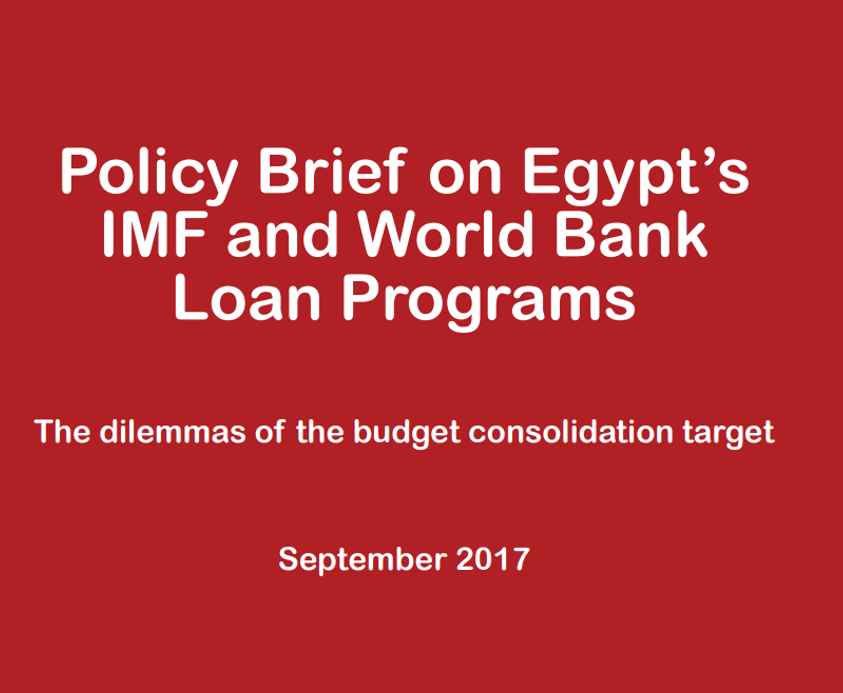

Egypt: Policy Brief on Egypt’s IMF and World Bank Loan Programs.
Introduction
Egypt signed an agreement with the World Bank to obtain a $3 billion Development Policy Loan in the final days of 2015. Egypt shall receive the amount over three annual installments (two have already been disbursed). Few months later, Egypt embarked on negotiations with the International Monetary Fund (IMF) for the largest external loan in its history and one of the largest loans granted by the IMF in its history. The loan is worth $ 12 billion, disbursed to Egypt over semi-annual installments over a period of three years, the period of implementation of the signed program.
Both loans have been extended in a period characterized by increased reliance on external borrowing. A period in which Egypt is suffering from a balance of payments deficit and the erosion of international reserves as a result of the free flow of frightened capital during a period of great political instability. This leads to questioning the proper timing of reliance on foreign loans.
External borrowing during the past 6 years was done without any accountability or popular debate, in light of total absence of the role of parliament, especially as a large part of external borrowing was
made by the Central Bank, without coordination with the government.
This raises the question of the legitimacy of such borrowing. Indeed, the IMF and World Bank loans are tainted with the suspicion of unconstitutionality. The Government signed agreements with the two
institutions and began to implement the procedures and disbursement of payments without the Parliament’s approval.
Click here to download the full report
This report is part of ANND policy briefs on IMF country reports 2017
Recent publications

